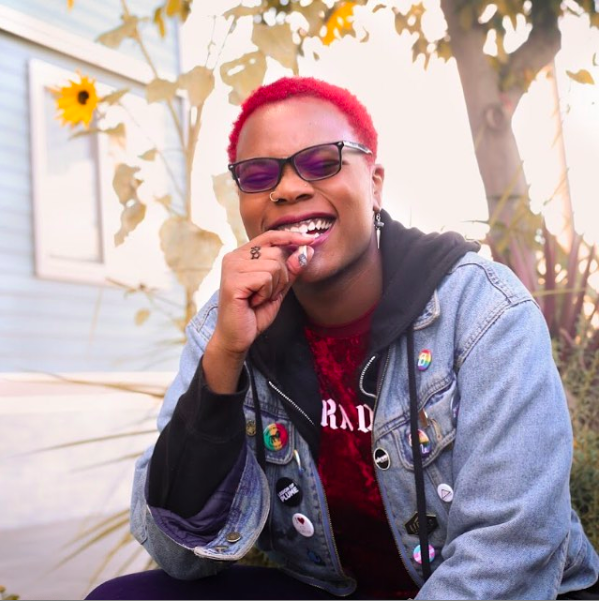In 2012, the same year cannabis was legalized in Washington, almost fifty percent of all drug arrests were for marijuana. People of color (POC), namely black and latinxs folks, were (and still are) more likely to be arrested on marijuana charges than their white peers — in some places almost 10 times more likely. Fast forward to 2019 and the industry is predominantly male and white. The barriers to entry have largely kept people of color on the sidelines as consumers and unable to profit from an industry that stems from the targeted criminalization of them by the “War on Drugs.”
Working as a budtender in Seattle Washington, Ahnya Smith recognized the outrageous whitewashing of the industry, which lead to her creating an organization with the community and restorative justice in mind. Colored Cannabis Collective (CCC), is an “organization focused on Community Service, Representation of POC in cannabis, and changing the stigma of cannabis for us all.”
She told me that looking back, it was the diversity and collective camaraderie between fellow smokers and people who had been involved with cannabis in some way since before legalization, that gave her the concept for CCC.
“It was literally a smoke out at Cal Anderson Park… Just being around all these people of different backgrounds, different styles, likes, attitudes and we were all able to come together — even if it was just to smoke. Something about that made me be like, ‘We need something like this but now let’s get up and do something with it.’”
Community Service
In September of 2018 CCC created its first of many community cleanup events. Since then, the group has held twelve other cleanups in Seattle and its neighboring cities. Outside of the cleanup work that CCC and those who believe in their mission have been doing, they also held a voter registration drive — emphasizing just how important it is for people of color and people advocating for equality in the cannabis industry, to make their voice heard.
The collective held a winter readiness drive last year asking for blankets, coats, and sleeping bags for the local homeless, as well as a homeless outreach event where CCC asked for energy food bars, sunscreen, hand sanitizer, chapstick, menstrual products, wipes and whatever else people could provide for the homeless in June of this year. The intention of these events is to motivate, inspire, and foster communities that care about their neighbors — regardless of race, class, sexual orientation, or ability. These events are more than cleanups, they are about replacing indifference with empathy.
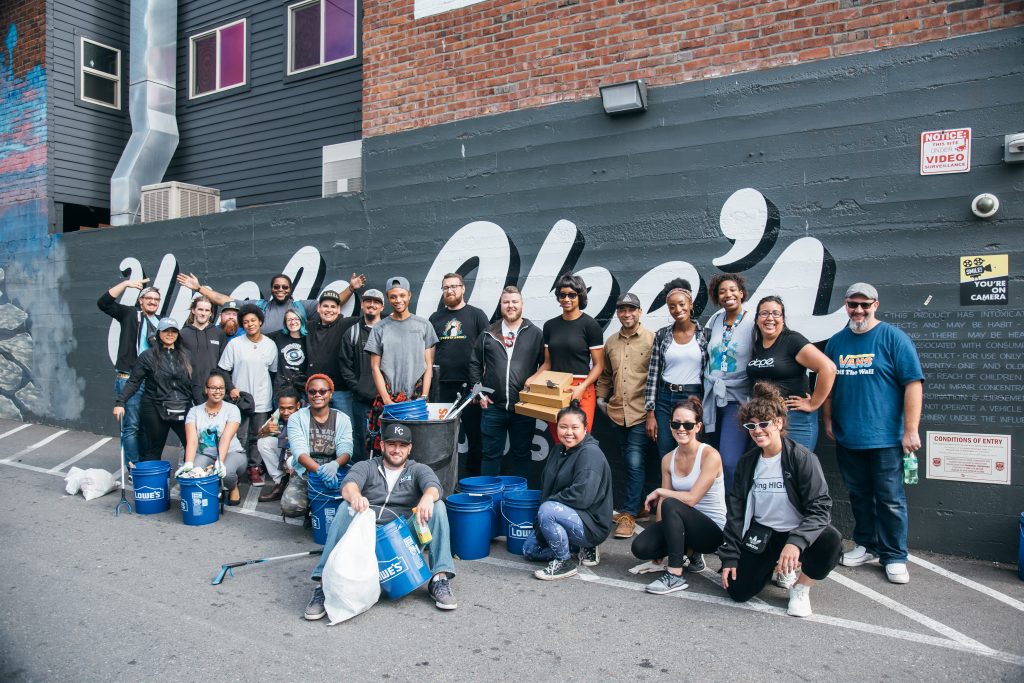
Representation of POC in Cannabis
In 2017 marijuana business owners and founders were over eighty percent white. “It essentially looks like it is just allowing rich white businessmen to prosper which isn’t fair. Now it’s these people that you would never have seen before legalization, coming into this industry and prospering.” Smith told us. “The industry needs to do what the rest of the country needs to do in a lot of aspects, which is, pay homage to the black market people.”
If you’ve been an advocate and consumer of cannabis during prohibition, chances are you have dealt with the harassment and stigma of the plant from law enforcement and mainstream society. If you are a person of color this rings true to a much more dangerous degree.
When Initiative 502 passed in Washington State, it made specific amounts of cannabis legal for adults over twenty-one, but it can only be bought and sold at state-licensed retail stores. The state Liquor and Cannabis Board (LCB) also uses a point system for past crimes to determine eligibility for legal pot licenses. A felony conviction in the past ten years generally disqualifies an applicant. Considering the financial barriers to entry, statistics, and our lived experiences that show us that there are large racial disparities in arrest rates for cannabis, these circumstances effectively block many POC from entering the industry. Last year only 4 percent of the industry was owned by Black entrepreneurs.
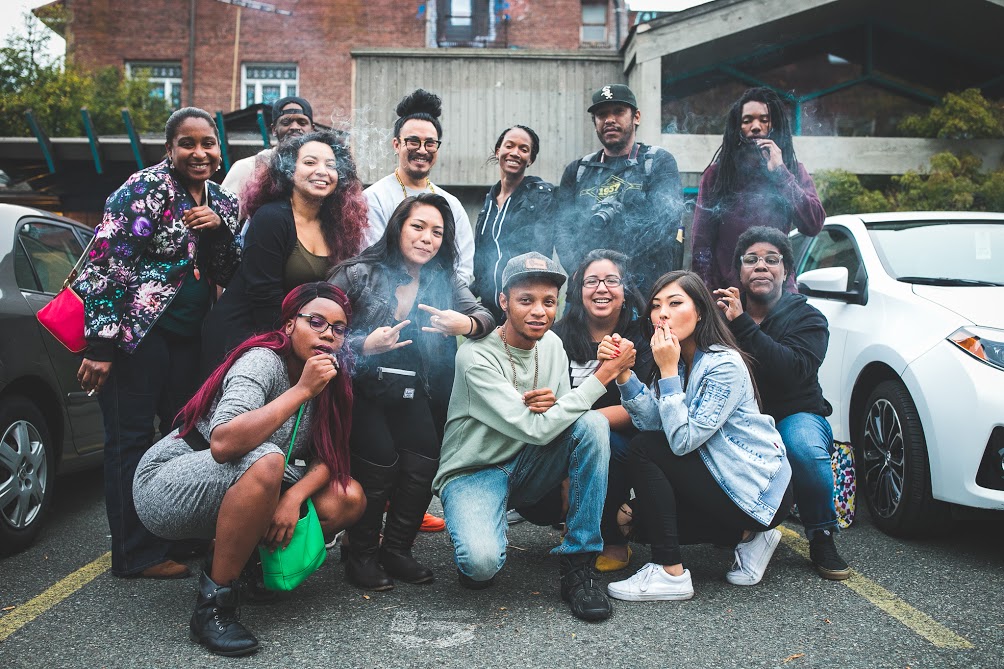
That is an obscenely low number. In contrast, 84% of those sentenced to federal prison just last year for marijuana were people of color. Only eleven percent were white even though they make up more than sixty percent of the population and consume cannabis at similar rates to people of color.
“You can’t profit off of something that people are still suffering from. That’s why an equity program is so important.” Smith told us. “Eventually we’re gonna start doing our equity program which is going to be neighborhood funded. My goal is to pay for at least one person to get their medical marijuana license this year, and then next year pay for ten, and the next year pay for 20 and give someone a $10 thousand dollar grant to help with their brand. We’re gonna start building that equity program pretty soon. We’re gonna get our business license and then I can start taking dues from members and we can take off from there.”
Long-term goals for the representation of people of color in cannabis include a minority cup to highlight minority-owned brands. “I would love to bring it to legal and medical states. The first couple of years it would probably be a display for minority-owned brands because there really aren’t that many to do a full-on competition, but if we could give them some recognition and a seal to help build that name up then in 5 years the minority cannabis cup could be a huge thing. It will be a huge thing. I’m speaking it into existence.”
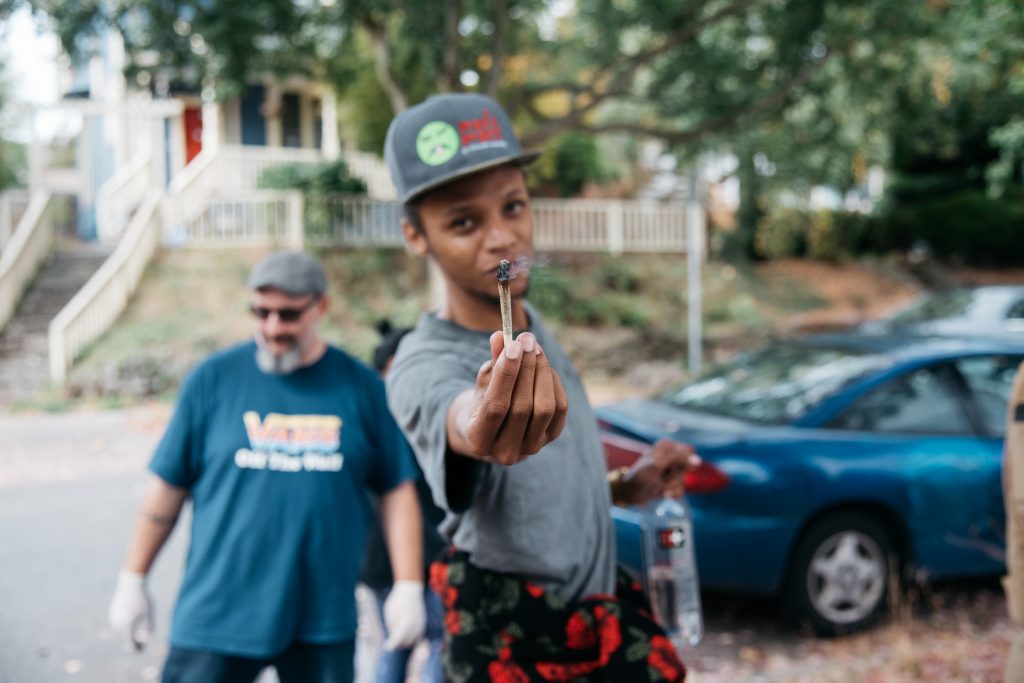
Changing The Stigma of Cannabis For Us All!
To further the blow, when white men start cannabis businesses in the neighborhoods of marginalized communities he is still seen as a businessman, and the people in that neighborhood are still seen as criminals. People of color are watching their white peers earn millions while our communities are still reeling from the injustices of racial profiling and the “War on Drugs.”
“You [canna-industry professionals] can’t be in a neighborhood where people were selling weed [pre-legalization] and now they are locked up and you are prospering without doing something for that neighborhood,” Smith explained. “Why not throw a BBQ or put on local shows or donate… Why can’t we actively give back to the community besides selling cheap joints to people? There has to be more than that. I feel like the canna industry can be the example in the country, as far as giving back to people that you used to take from, how you can do that correctly. The shops should become part of the neighborhood that they’re in, not to take from it but to become a part of it. Have community events or become sponsors for different local events that aren’t just cannabis related to show that you support the community in that basic way.”
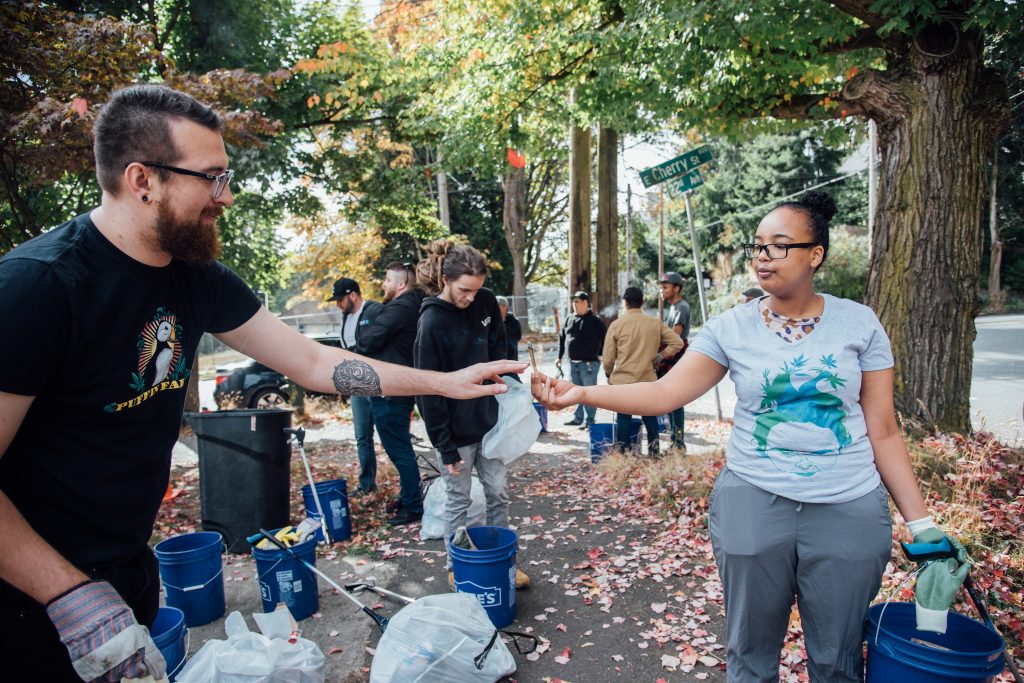
In essence what Smith is saying is, to change the stigma of cannabis for all, our white allies have to recognize their privilege and support movements like the one CCC has started. Support the equity programs that help to create equal opportunities, advocate for the release of those still serving prison sentences for a plant that is legal in your state, and if you are a business owner, invest in the community that surrounds you and that you benefit from.
The Future of Colored Cannabis Collective
Smith told me that by the end of 2020 she would like to be working on CCC full-time, creating chapters of CCC in other states. Once the 5013c license is obtained the collective will be taking membership dues from those who are committed to being members. “We have so many creatives tied to CCC that you get a discount from people’s services that are in the group. You get access to special parties or infused dinners, you can tour farms with us. Just make it a cannabis community that is focused on giving back to the community through cannabis and still having a good time. Smoking at everything we do, creating friendships, networking, and normalizing this plant for all of us.”
Follow Colored Cannabis Collective on Instagram and Facebook.

